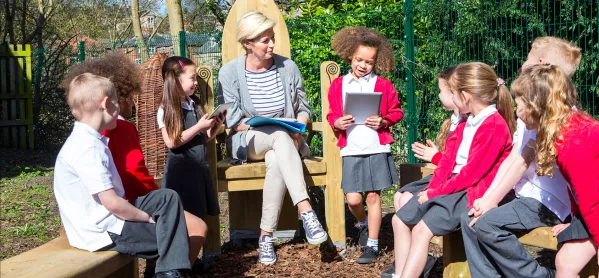- Home
- Leadership
- Strategy
- 4 reasons SLT should accompany school trips
4 reasons SLT should accompany school trips

Maybe it’s the science teacher in me who is too often cooped up in a lab or looking through a microscope but I have always loved school trips and the chance to get offsite.
Even now as a senior leader, I endeavour to take part in both helping to plan and attend school trips as it provides numerous benefits to you, the school and the staff that cannot be replicated anywhere else.
Here’s why I think all senior leaders should be involved in at least one trip a year.
1. Active planning
Arranging a school trip is a process and being part of the planning (not just approval) process as a leader adds a layer of authenticity.
For example, leaders should volunteer to take on part of the planning, it could be arranging the pre-approval paperwork, drafting the letter, preparing the risk assessment, collecting reply/consent slips or organising the pre-trip briefing for staff, pupils or, if residential, parents.
By taking part in one of the “less glamourous” aspects of a school trip, leaders show a willingness to support staff and are seen less as observers or overseers.
Participation in the planning process also gives leaders a clear understanding of the quality of the planning process. No one is suggesting that trips should have no paperwork but, too often, there are unnecessary aspects to the planning, such as repetition.
This can only really be understood if leaders have a more intimate role in the process. I have seen trip paperwork improve when senior leaders have been part of the planning process.
2. On the day
After all that planning, not much could go wrong, right? If only.
On the day of the trip, a senior leader should be there to support any “last-minute hitches”. These range from arranging alternative tasks or supervision for late pupils, rescheduling missing buses or managing insufficient staff numbers.
One of my most enjoyable school trips as a senior leader was accompanying a trip to the theatre unexpectedly as one too many English teachers were unwell on the day. I did not exactly jump at the opportunity but realised there was too little notice to arrange an alternative.
As senior leaders, we probably have less or no teaching, so it is much more convenient to have senior leaders on the emergency trip supervision rota especially as senior leaders should have the skill set to fully support and step in when needed.
3. Forming relationships
Everyone in education knows seeing pupils and staff out of the classroom gives you a greater understanding of them as individuals and school trips enable those bonds to develop in ways that would otherwise not be possible.
It also means you get to see another side of staff and pupils that you would not have the opportunity to see. They also see you out of the school context, potentially making you more relatable.
To make sure that happens, though, and staff and pupils do not feel you are there to watch them, focus on the trip and do not bring any “shop talk”.
Instead, offer to volunteer to lead a group or do a demonstration if required. Ask questions when the time comes and generally make it clear you are there to take part, not oversee.
4. Providing support
When senior leaders take an active role and interest in trips through planning or attendance, they reiterate they are there to support the team.
School trips can be burdensome and reassuring staff they can rely on a senior leader could make all the difference between a trip and no trip.
This may mean taking on the roles that nobody else wants. For example, carrying the first aid bag, doing toilet duty, doing regular head counts, being stationed at a specific spot in case pupils get lost or staying at the exit gates to dissuade pupils from leaving the facility.
Mucking in like this can do more than a hundred well-written emails or speeches in assemblies about how the school is one big team as it gives you the chance to demonstrate this, rather than just say it.
School trips are often the most memorable aspects of a school year for pupils. As staff, it is easy for us to overlook their significance especially as we may end up going on the same trip many times within our time in a school.
However, they are truly worth the effort as they develop a vast range of skills and are just so much fun.
Ayisat Fashola has held school leadership positions in the UK, UAE and Qatar. She is currently head of science at an independent school in Sydney, Australia
You need a Tes subscription to read this article
Subscribe now to read this article and get other subscriber-only content:
- Unlimited access to all Tes magazine content
- Exclusive subscriber-only stories
- Award-winning email newsletters
Already a subscriber? Log in
You need a subscription to read this article
Subscribe now to read this article and get other subscriber-only content, including:
- Unlimited access to all Tes magazine content
- Exclusive subscriber-only stories
- Award-winning email newsletters
topics in this article



